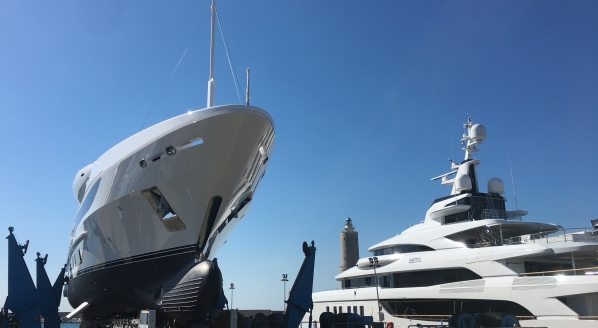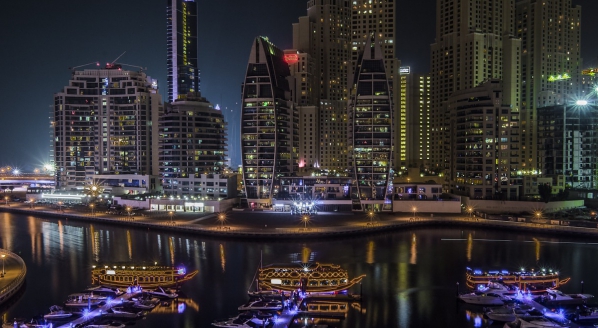The changing face of commercial yachting
Thibault Hermant, Partner H&V Yachting, explores how recent VAT changes will effect charter vessels…
Last year the EU Commission issued the kind of invitation you can’t refuse to France and Italy urging them to review current schemes for reducing VAT on charter fees.
The Commission’s drive to ensure regulations are applied across the board reflects a hardening approach towards ‘creative’ work-arounds. The VAT rules themselves have not changed.
Under EU law, VAT is due only on services performed in the EU, not on services outside the EU territory and waters. This means that cruising in international waters will continue not be subject to VAT. Lump sums reduction schemes however are in the crosshairs and will be discontinued as of spring 2020.
Under the new scheme, VAT will be levied on charters within EU waters but no VAT will be due for the exact time spent cruising outside EU waters.
With a nod to the much called-for harmonization, the new scheme will come into effect around 1 April 2020. However, France and Italy are handling the transition differently. As long as a charter contract was signed before March 29, 2020, the old scheme will continue to apply in France. On the other hand, all charters starting after April 1st 2020 will probably be subject to the new rules in Italy, irrespective of when the charter contract was executed. We are waiting for final confirmation of this position from the Italian authorities.
How will this work on the ground? Unless the majority of cruising is in international waters (a highly unlikely scenario) the portion of VAT exempt fees will be negligible. Let’s take the example of a Monaco-Monaco cruise via Bonifacio. The segment in international waters is 73nm each way. At 12knots, the distance takes between six and seven hours to cover. The incidence of 12 to 14 hours for the return trip in a 7 days charter (approx. 168hrs) is 1.2 per cent. The benefit is not worth the effort it takes to compute.
The impact on the charterer is clear, 20 per cent VAT is now applicable in France instead of 10 per cebt and 22 per cent in Italy instead of 6.6 per cent.
How does this affect the current VAT exemptions schemes for commercial yachts?
Again, the impact is far-reaching. Under the French Commercial Exemption schemes, yachts are granted VAT exemption on the purchase of goods and services in France and Monaco if they can prove compliance with a number of requirements including what has become known as the ’70 per cent rule’. The rule states that 70 per cent of worldwide trips must be ‘qualifying’ trips, i.e. trips that include navigation outside French territorial waters. Trips, qualifying or not, can only be generated while under charter.
However, since VAT can no longer be mitigated, charterers will have no interest in cruising in international waters and it will be almost impossible for most yachts to meet the requirements.
Planning this year becomes critical. Yachts intending to apply for a VAT “exemption by anticipation” run a serious risk of failing to comply with the terms of the exemption and generating a direct VAT liability.
The most likely solution, and the one that is being implemented by the majority of yachts, is to adopt standard business practices regarding taxation and VAT which allow a business (the yacht owning company) to offset the VAT paid on the purchase of goods and services with the VAT charged on the services it offers.
However, it is important to make a distinction between the purchase of a service and the purchase of goods.
Regarding services, most invoices should be without VAT unless the supplier of the service is established and VAT registered in the same jurisdiction as the owning company. However, if VAT is to be charged, it can be offset.
Regarding goods, as a general rule, VAT is due where the goods are supplied. This entails a cash outlay since VAT will have to be paid. The VAT can be offset and the balance recovered following the submission of the monthly or quarterly VAT filing.
This demands accurate bookkeeping with regards to the substance and form of invoices. Firstly, invoices must relate to the commercial activity of the yacht owning company and represent a cost to the same. For instance, VAT paid on invoices for services consumed by the charterer and paid using the APA cannot be reclaimed. Secondly, invoices must include the full details of the yacht owning company as well as its domestic VAT number. Your fiscal agent will be able to advise on exact details.
Although the introduction of VAT predates the growth of modern yachting by almost 20 years, numerous schemes have been devised to avoid VAT altogether or mitigate the burden. Now, driven by the industry’s growth and visibility, such schemes are being challenged. After years of unfettered cruising, the commercial side of yachting is becoming more closely aligned to standard business practices, including VAT regulations. This comes with long-term benefits. The level of fiscal and legal scrutiny is bound to decrease in the face of a coherent, shared regulatory framework.
NEW: Sign up for SuperyachtNewsweek!
Get the latest weekly news, in-depth reports, intelligence, and strategic insights, delivered directly from The Superyacht Group's editors and market analysts.
Stay at the forefront of the superyacht industry with SuperyachtNewsweek
Click here to become part of The Superyacht Group community, and join us in our mission to make this industry accessible to all, and prosperous for the long-term. We are offering access to the superyacht industry’s most comprehensive and longstanding archive of business-critical information, as well as a comprehensive, real-time superyacht fleet database, for just £10 per month, because we are One Industry with One Mission. Sign up here.
Related news

Coronavirus update from Italy
SuperyachtNews investigates a growing level of hysteria that could impact the industry
Business

The Italian (Shipyard) Renaissance
T-Quest Holdings acquires Italian shipyard, Falcon Yachts
Business

The impending threat of IMO Tier III regulations to sub-500GT yachts
SuperyachtNews speaks to Azimut Benetti about the impending regulations
Technology

Equinoxe Yachts International celebrates successful first year
SuperyachtNews speaks to the boutique brokerage house about its USPs in a competitive sector
Business
.jpg)
Benetti: awash with activity
Benetti has not only launched its latest 70m, but also confirmed the sale of its third B.Now superyacht
Fleet

Man cannot live by superyachts alone
How Dubai’s prohibitive boating policies could challenge the future of its superyacht market
Business
Related news
Coronavirus update from Italy
5 years ago
The Italian (Shipyard) Renaissance
5 years ago
Benetti: awash with activity
5 years ago
Man cannot live by superyachts alone
5 years ago
Acquera Yachting rebrands as Evolution Yachting
5 years ago
NEW: Sign up for
SuperyachtNewsweek!
Get the latest weekly news, in-depth reports, intelligence, and strategic insights, delivered directly from The Superyacht Group's editors and market analysts.
Stay at the forefront of the superyacht industry with SuperyachtNewsweek




